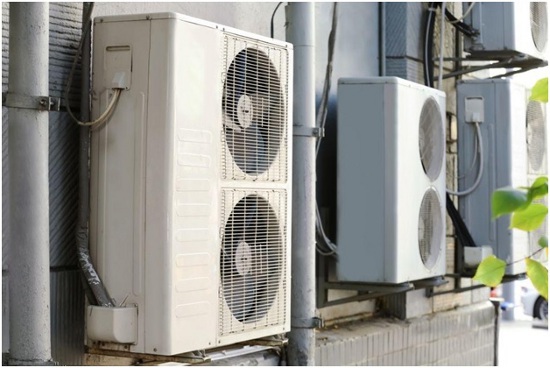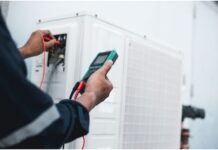Let’s be honest—most of us don’t think about our HVAC systems until something goes wrong. Then suddenly, your home feels more like a sauna or an icebox, and you’re scrambling to fix it.
But here’s the deal: your system doesn’t just fail out of nowhere.
It gives you signs—clear warnings that scream, “I need help!”
Knowing these signs can save you money, stress, and those all-too-familiar emergency HVAC repair calls.
Let’s break it down.
Why Ignoring HVAC Problems Costs You
Here’s the truth: ignoring small HVAC issues is like ignoring a check engine light in your car.
- It costs you: Small problems turn into bigger, more expensive repairs.
- It wastes energy: A struggling system uses more power, which means higher bills.
- It reduces comfort: No one wants to live in a home that’s too hot, too cold, or constantly uncomfortable.
The good news? Recognizing the signs early makes a huge difference.
Signs Your HVAC System Needs Repair Immediately
If your system is acting up, don’t wait—get it checked.
Here are the top warning signs:
1. Unusual Noises
Your HVAC system should hum quietly in the background.
If it’s banging, clanking, or hissing, something’s wrong.
- Common noises and causes:
-
- Banging: Loose or broken parts.
- Hissing: Refrigerant leaks.
- Clicking: Electrical issues.
- Why it matters: Ignoring these noises can lead to a complete system breakdown.
2. Inconsistent Temperatures
Does one room feel like the Arctic while another feels like a desert?
That’s a clear sign your system isn’t working efficiently.
- Potential causes:
- Duct leaks.
- Thermostat problems.
- Failing blower motor.
- The fix: Call for HVAC repair to rebalance your system.
3. Weak Airflow
If the air coming out of your vents feels weak, your system is struggling.
- What it could mean:
- A clogged filter.
- Blocked ducts.
- A failing fan or motor.
- Why it’s urgent: Poor airflow forces your system to work harder, increasing energy use and wear.
4. Rising Energy Bills
Has your energy bill suddenly spiked for no reason?
- What’s happening: Your system is likely working overtime due to inefficiency.
- Why you need a fix: Regular maintenance and timely HVAC repair can save you hundreds on utility costs.
5. Strange Smells
Your HVAC system should never smell funky.
- Types of odors to watch for:
- Burning smells: Electrical issues or overheating parts.
- Musty odors: Mold or mildew in your system.
- Act fast: Poor air quality isn’t just annoying—it can be a health hazard.
6. Frequent Cycling
Does your system keep turning on and off?
This is called short cycling, and it’s a red flag.
- Common causes:
- A dirty filter.
- Oversized or undersized unit.
- Malfunctioning thermostat.
- Why it matters: Frequent cycling puts unnecessary strain on your system, shortening its lifespan.
7. Your System Is Over 10 Years Old
HVAC systems aren’t built to last forever.
- Signs of aging:
- Frequent HVAC repair calls.
- Decreased efficiency.
- Inconsistent performance.
- What to do: If your system is over a decade old, it might be time to consider a replacement.
8. Warm Air from Your AC
Your air conditioner’s job is to cool your home, period.
- If it’s blowing warm air:
- Low refrigerant levels.
- A malfunctioning compressor.
- Clogged filters or ducts.
- The solution: Schedule AC repair before the problem worsens.
9. Your Heater Isn’t Keeping Up
When the temperature drops, your heater should keep you cozy.
- Signs of trouble:
- Cold spots in your home.
- Delayed heating.
- Odd noises or smells.
- Fix it fast: Call for heating repair to avoid being left in the cold.
10. Water or Refrigerant Leaks
Seeing puddles near your HVAC unit?
That’s never a good sign.
- Water leaks: Often caused by clogged drain lines or frozen coils.
- Refrigerant leaks: Harmful to the environment and your system’s efficiency.
- Why you need help: These leaks can lead to serious damage if not addressed quickly.
How HVAC Technicians Save the Day
Here’s why calling a pro is always the right move:
1. Accurate Diagnosis
HVAC technicians don’t guess—they know.
- What they check:
- Refrigerant levels.
- Filters and ductwork.
- Electrical components.
● Why it matters: Identifying the root cause saves you time and money.
2. Expert Repairs
From minor fixes to major overhauls, technicians have the skills to get it done right.
- Common repairs include:
- Replacing worn-out parts.
- Sealing duct leaks.
- Repairing motors and compressors.
3. Preventative Maintenance
The best way to avoid future problems is with regular care.
- What it involves:
- Cleaning coils and filters.
- Testing system efficiency.
- Lubricating moving parts.
● The payoff: A system that runs better, lasts longer, and saves you money.
FAQs About HVAC Repair
Q: How often should I schedule HVAC maintenance?
A: At least once a year—ideally in spring for cooling systems and fall for heating systems.
Q: Can I DIY HVAC repairs?
A: You can clean filters and clear debris, but leave major repairs to HVAC technicians to avoid causing more damage.
Q: How long do HVAC systems last?
A: Most systems last 10-15 years with proper maintenance.
Q: What’s the cost of HVAC repair?
A: It varies—minor repairs can range from $150-$300, while major fixes might exceed $1,000.
Q: How do I improve my system’s efficiency?
A: Replace filters regularly, seal duct leaks, and schedule routine maintenance.
Wrapping It Up
Your HVAC system is the unsung hero of your home, keeping you comfortable year-round.
But when something feels off, don’t ignore it—those small issues can quickly turn into big problems.
From weak airflow to unusual noises, knowing the warning signs of trouble can save you time, money, and stress.
And when it’s time for repairs, trust the pros—HVAC technicians are your go-to experts for HVAC repair, AC repair, and Heating repair.
Don’t wait until your system breaks down completely.
Stay ahead of the game and schedule your HVAC repair today.




















